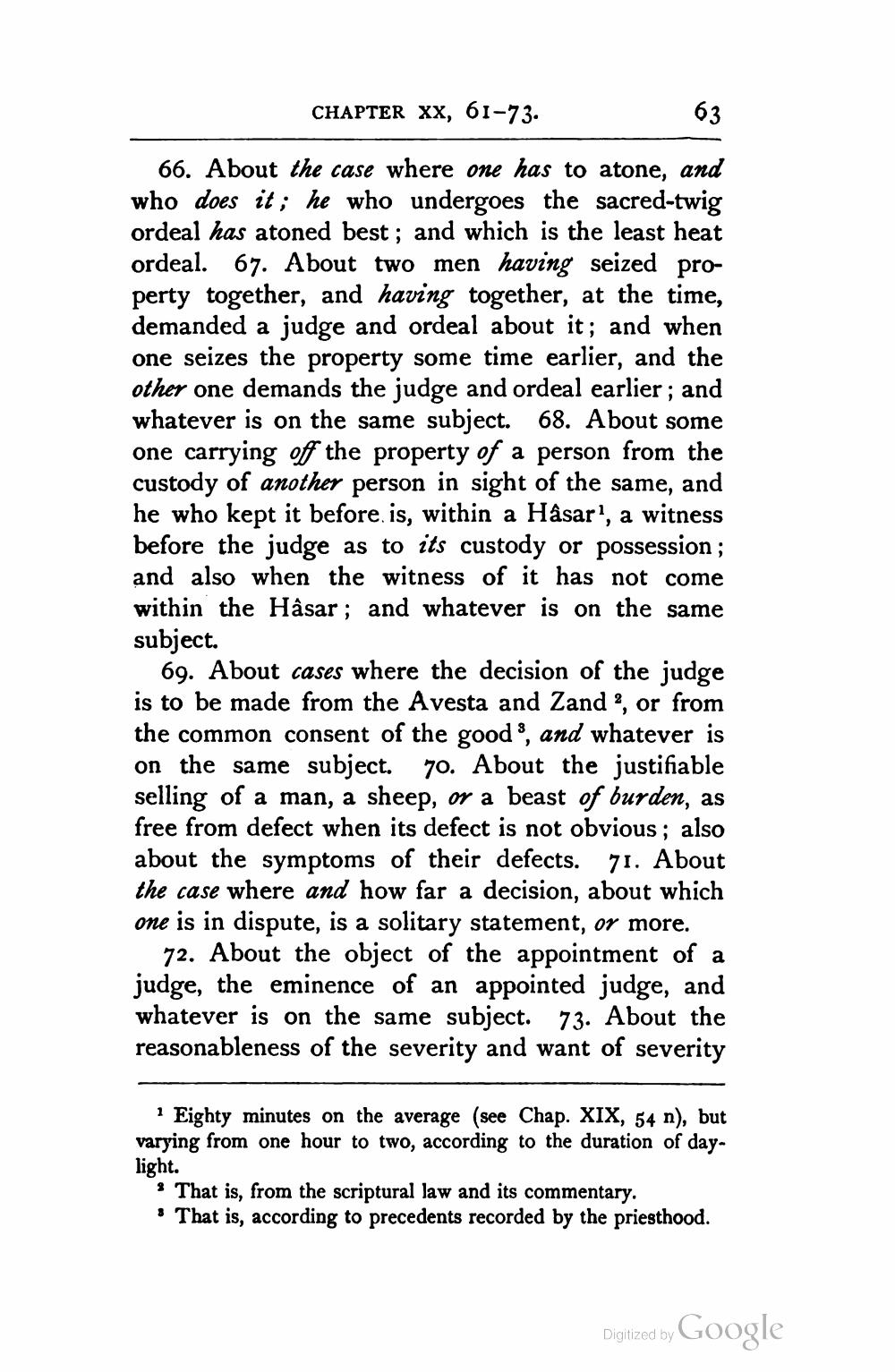________________
CHAPTER XX, 61-73.
63
66. About the case where one has to atone, and who does it; he who undergoes the sacred-twig ordeal has atoned best; and which is the least heat ordeal. 67. About two men having seized property together, and having together, at the time, demanded a judge and ordeal about it; and when one seizes the property some time earlier, and the other one demands the judge and ordeal earlier; and whatever is on the same subject. 68. About some one carrying off the property of a person from the custody of another person in sight of the same, and he who kept it before is, within a Hâsar1, a witness before the judge as to its custody or possession; and also when the witness of it has not come within the Hâsar; and whatever is on the same subject.
69. About cases where the decision of the judge is to be made from the Avesta and Zand 2, or from the common consent of the good, and whatever is on the same subject. 70. About the justifiable selling of a man, a sheep, or a beast of burden, as free from defect when its defect is not obvious; also about the symptoms of their defects. 71. About the case where and how far a decision, about which one is in dispute, is a solitary statement, or more.
72. About the object of the appointment of a judge, the eminence of an appointed judge, and whatever is on the same subject. 73. About the reasonableness of the severity and want of severity
1 Eighty minutes on the average (see Chap. XIX, 54 n), but varying from one hour to two, according to the duration of daylight.
That is, from the scriptural law and its commentary.
That is, according to precedents recorded by the priesthood.
Digitized by
Google




